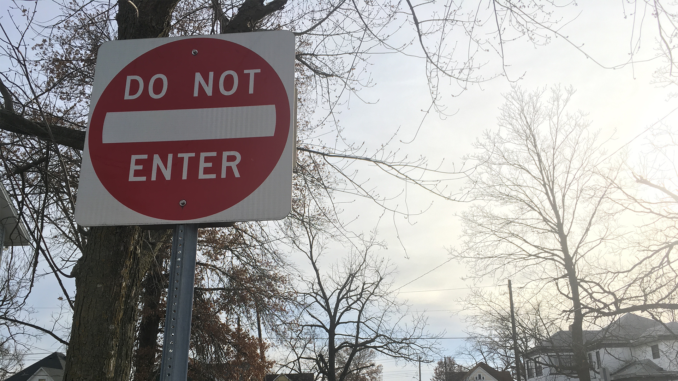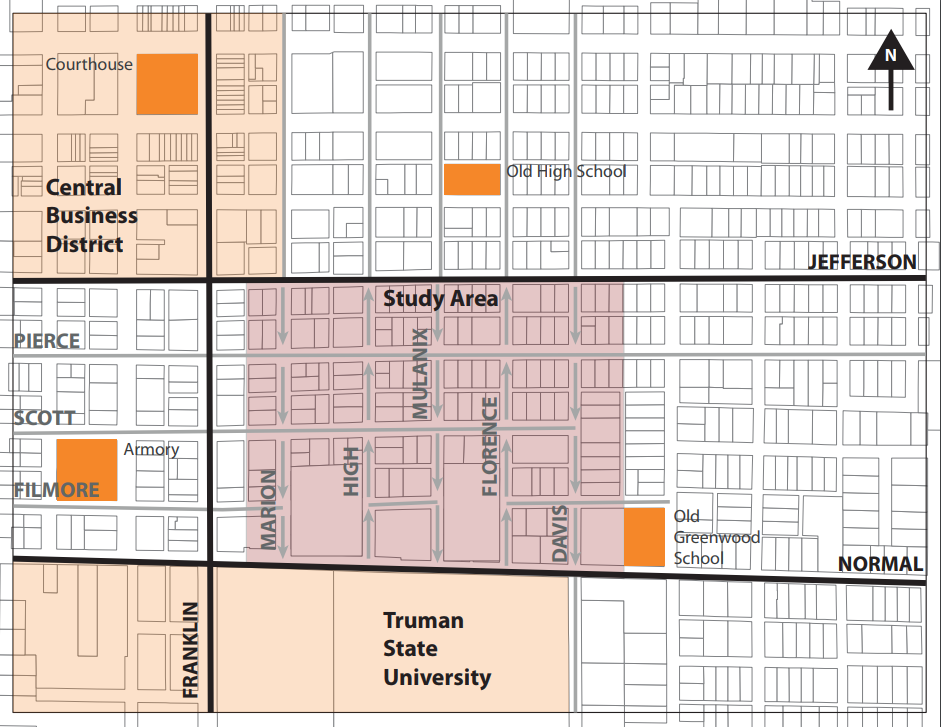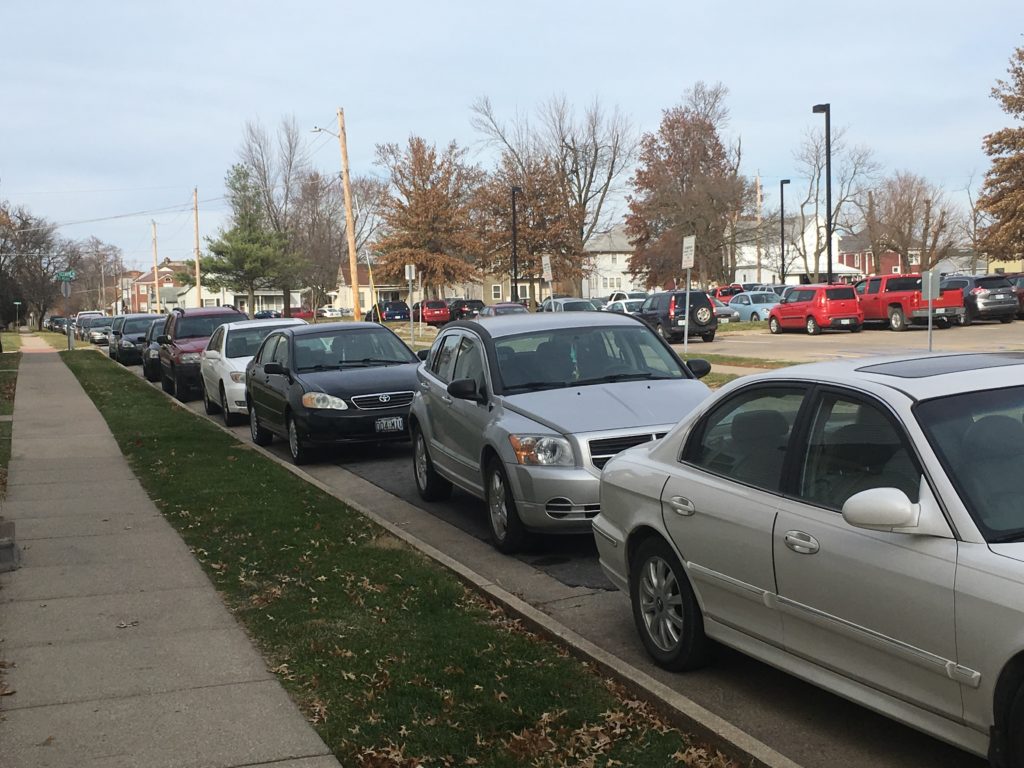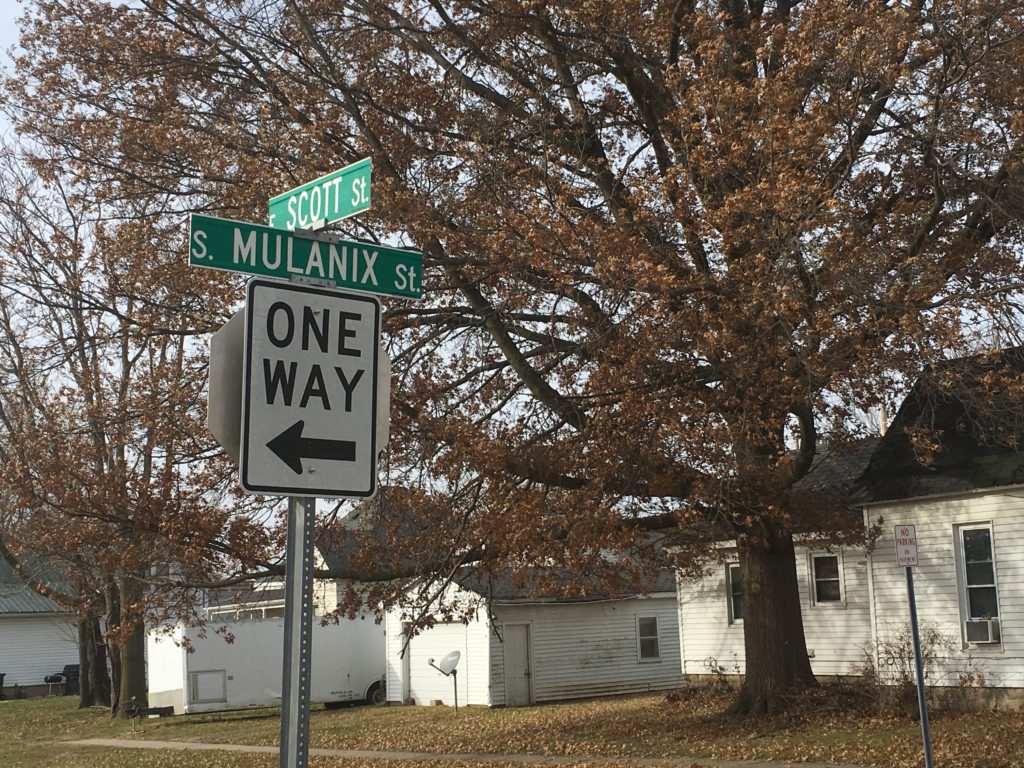
Kirksville City Hall will begin research in fall of 2018 on selected one-way streets in the neighborhood north of Truman State University. This research will be conducted by a professional consultant to determine the best and most logical organization of traffic.
Tom Batenhorst, MoDot District planning manager, says MoDot approved Kirksville City Hall’s application in early November, 2017. MoDot receives more than 60 statewide applications during the application season of October and typically approves and funds only about 20 applications or one third of applications.

However, this is not the first time this study and application has been submitted, Batenhorst says.
“What Kirksville did two years ago was submit ‘The downtown traffic study,’ and were granted money to determine the safest and most logical way to direct downtown traffic,” Batenhorst explains.
Kirksville previously analyzed streets Missouri, Marion, Jefferson and North Main St. This new and current application authorizes a study on streets Jefferson, Davis, Normal and Marion St., moving away from downtown, and closer to Truman State University’s campus.
Chayton True, Kirksville’s city planner, says the main reason for the research is determining the safest form of traffic for the neighborhood north of Truman’s campus.
“We want to make sure that if you’re walking to campus, that there aren’t any accidents within the neighborhood that could affect you,” True says. “Also, we want to make sure that we can access an emergency situation within the neighborhood within a timely manner without needing to figure out how to get through here because it is a one-way, or there might be cars parks in the street where we can’t access the property on a normal route.”
This approval grants Kirksville with enough funds to hire a consultant with “fresh eyes,” True says.
“We want them to give us recommendations as to how we can increase the safety of the neighborhood and what those options might be,” True says. “And hopefully, they will have some ideas as to how we can address the high demand for parking if we do end up needing to eliminate on-street parking.”
The main concern for the community, Truman students included, is what this construction will do to on-street parking. This is because if the consultant concludes that two-way streets are the safest option, then on-street parking is restricted on streets that are only 24-feet-wide.
Many Truman students depend on on-street parking, as they live far from campus, and park in the neighborhood area. True says he is concerned with Truman’s possible response to this change of restricted parking.
“I think the things we don’t want to do, we don’t want to pressure the parking situation to the point where Truman feels like they need to eat up more blocks,” True says. “When that happens, the city gets less tax revenue—so I don’t think we want to create a huge demand for parking where we are going to have to build more.”
Some Truman students also say they rely on on-street parking as they don’t have driveways on their rental properties.
“It is kind of a nuisance, especially living on a one-way street because sometimes I have to circle around just to park in front of my house,” Truman sophomore Eric Bals says. “[But], after your first month in Kirksville, you get used to the one-ways and it’s really not as annoying as it once was.”
Other Truman students rely on on-street parking simply because there are not enough parking spaces on the campus, or they don’t have a parking pass for on-campus parking.
Truman junior Torin Halbert says parking on campus is inconvenient due to the price of the parking pass and the available space.
“And then if you don’t park in the correct area that your parking pass allows you to, then you get a ticket,” Halbert says. “Then it becomes a bigger fiasco than it is—it’s just not worth it.”
Although the city finds this application for the grant an option for helping make streets safer, Truman students say they’re mostly concerned with the parking; and don’t understand the complexity of one-way streets in Kirksville.
“Currently, I think the one way streets work fine, give students who do not want to get a pass availability to park on the side of the street, that, and it’s just a simple small town system,” Halbert says. “It doesn’t need to get too complicated.”


